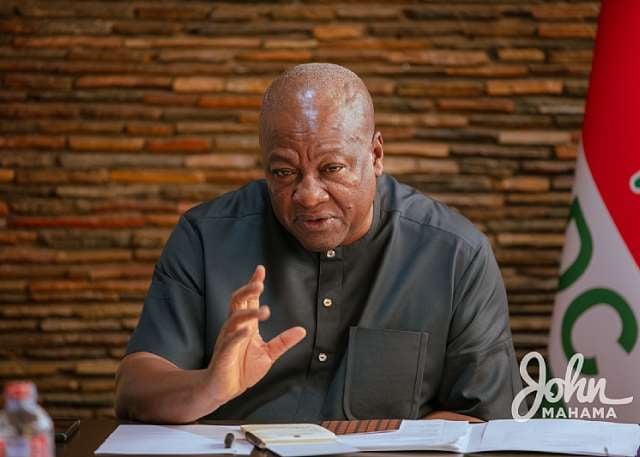John Dramani Mahama, the former President of Ghana and the National Democratic Congress (NDC) flagbearer for the upcoming 2024 presidential election, has articulated a vision for revitalizing the country’s public sector. At a recent governance forum, he pledged to transform the public sector into a more accountable and citizen-centric institution, advocating for a system that genuinely serves the needs of the populace. Mahama underscored the urgency of reestablishing public confidence in state institutions, which he believes has been undermined by inefficiencies and a lack of responsiveness. He emphasized the need for the public sector to operate with professionalism, ethical leadership, humility, and a strong sense of sacrifice in order to earn back the trust of the Ghanaian citizens.
Mahama pointed out that the current state of the public sector has led to widespread public dissatisfaction and a declining belief in government institutions. To address these concerns, he outlined a commitment to reviewing and enforcing stringent codes of conduct for public officeholders. This initiative aims to cultivate higher standards of accountability among public servants and ensure that those in power act in ways that are ethical and professional. He firmly believes that the success of his administration hinges on the reinstatement of integrity within the ranks of public service, setting the foundation for a more responsible and responsive government.
In addition to enhancing ethical governance, Mahama presented plans for significant legislative reforms geared towards combating corruption and improving transparency. One specific legislative initiative he highlighted was the revision and implementation of the Internal Audit Agencies Bill, which is aimed at addressing malfeasance within public agencies. Mahama is adamant that such reforms will create an environment where mismanagement and corruption cannot thrive, thereby restoring faith in public institutions. He envisions a proactive approach to governance that emphasizes both prevention and accountability, ensuring that public funds are used judiciously and that public representatives are held to high standards.
Moreover, Mahama stressed the importance of empowering independent bodies that oversee the public sector, declaring that such institutions must be fortified rather than undermined. He referenced organizations like the National Media Commission and the Office of the Special Prosecutor, suggesting that their enhanced roles would provide essential checks and balances within the public sector. By investing in these oversight institutions, Mahama believes that Ghana can achieve a paradigm shift in how public accountability is approached, fostering an environment where corruption and abuse of power are significantly curtailed.
Another critical component of Mahama’s reform agenda focuses on motivating public sector workers and equipping them with the necessary resources to effectively serve the nation. He argued that a well-supported workforce is vital for establishing a culture of professionalism within public institutions. By ensuring that public servants are both motivated and properly trained, Mahama contends that the public sector can respond more adeptly to the diverse needs of the populace. This approach aligns with his overarching vision of creating an efficient and effective public sector that reflects the aspirations and expectations of the Ghanaian people.
In summary, John Mahama’s vision for the public sector encapsulates a commitment to ethical governance, accountability, and transparency. Through a series of proposed reforms, he aims to mitigate the inefficiencies and corruption that have eroded public trust in government institutions. By reviewing ethical standards, reinforcing legislative measures, and empowering oversight bodies, Mahama seeks to build a public sector that not only works for the people but does so with integrity and dedication. His focus on motivating public sector workers underscores his belief that a capable and committed workforce is essential for achieving the responsive and efficient governance that Ghanaians deserve.


